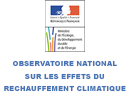Energy Transport Housing Environment Locations – ETHEL II
Energy Transport Housing Environment Locations – ETHEL II
The fight against greenhouse gases is a national priority, as reasserted in the 2004 Climate Plan, in particular in the Residential/Services and Transport sectors. With their growing greenhouse gas (GHG) emissions, both these sectors tend to wipe out the progress achieved between 1990 and 2001 in Industry (-17.1%), Energy Production (-16%) and Waste Treatment (-5.7%) sectors. Meanwhile, the Transport (+21.6%) and Construction (+18%) sectors display worrying trends, despite technological advances on both new automobiles and buildings. The growing distances travelled by individuals and surfaces requiring heating, in a sprawling urban environment dominated by individual homes and the sharp rise in distances covered by merchandise transport, with the growing preponderance of road transport, have contributed to the unchecked rise of fossil energy consumption. Reducing consumption in the housing and transport sectors would also contribute to the country’s energy independency.
The ETHEL research project is aimed at understanding the factors determining the growth of GHG emissions through interaction between transport and land usage so as to be able to act on determinants and, thereby, deter the growth dynamic. Ultimately, the aim is to help decision-makers “choose the best strategies for preventing the increase in the greenhouse effect”.
Phase II of the ETHEL programme is aimed at supplementing Phase I on two specific points: merchandise transport in cities and the residential sector.
The issues addressed in ETHEL-I, namely, the impact of societal and technological assumptions on ways of life, activity locations, the related types of housing, transport supply and the related travel behaviours, will be extended to include merchandise transport, in particular on the city deliveries aspect, in interaction with shifting household purchasing behaviours.
The resulting findings will be applicable in that they will identify and quantify the energy issues related to transport, locations and housing, as well as room for manoeuvre in terms of public policy. From the scientific standpoint, the main expected outcome is methodological progress in medium- and long-term modelling of the impact of economic, societal and technological factors on the behaviours studied.
The main innovation here lies in the fact that the project brings together, in a joint forward-looking effort, different proven forecasting models (in particular, the merchandise transport models intended for use) that are not merely forecasts based on previous trends, and sector-specific approaches to housing and transport, the models of which are not commonly brought into interaction.
Two activities are proposed: the first on merchandise transport in cities, and the second on fine-tuning energy models on housing their spatial morphologies.
| Coordinators |
Charles RAUX, Ingénieur de Recherche CNRS (1ère classe), Laboratoire d’Economie des Transports, ISH |
| Partnership |
Laboratoire d’Economie des Transports (LET), UMR CNRS 5593 |
| Funding |
ADEME
|




